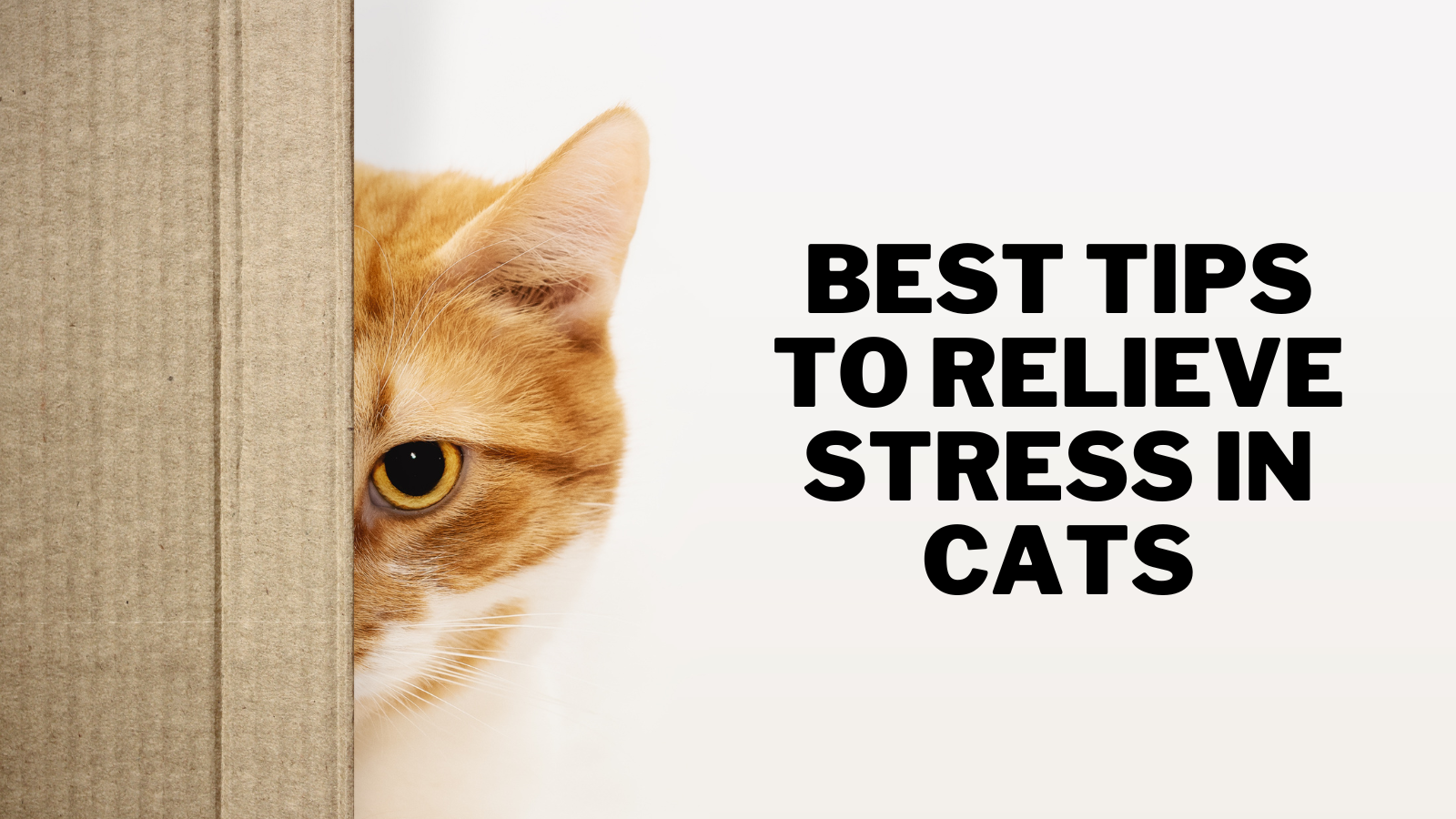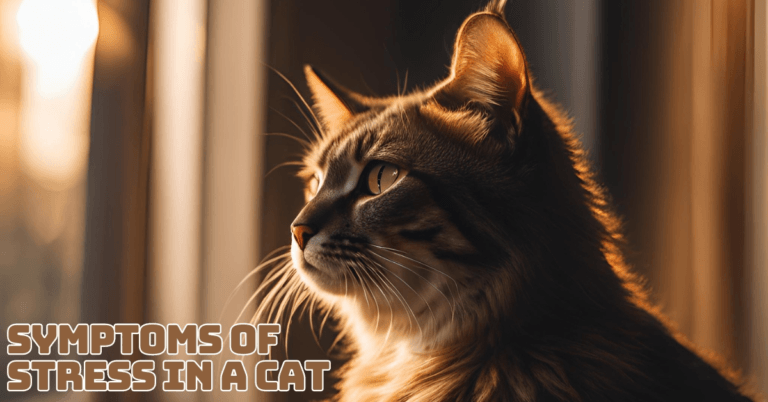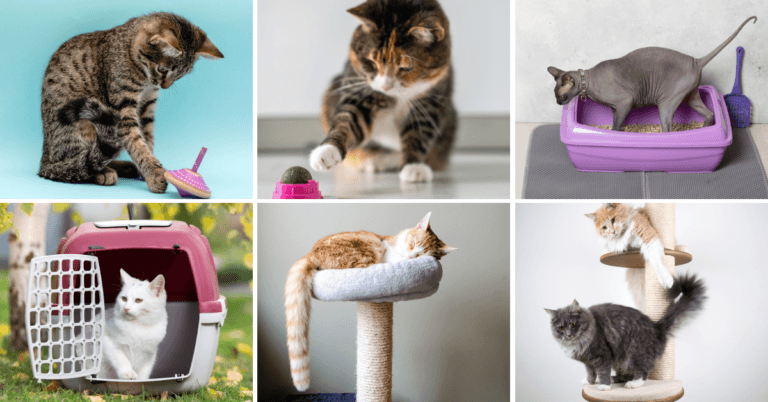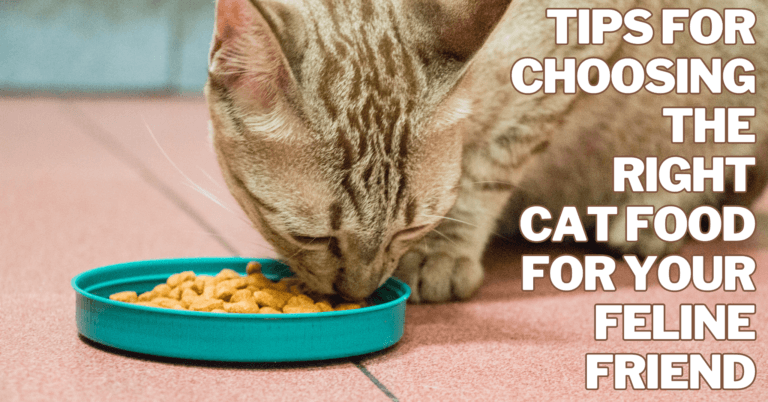Best Tips To Relieve Stress In Cats
Best Tips To Relieve Stress In Cats
Cats can experience stress like humans, negatively affecting their health and behaviour. There are various reasons why a cat may feel stressed, including changes in their environment, lack of socialization, illness or pain, and anxiety.
As a responsible cat owner, it's important to recognize the signs of stress in your feline friend and take steps to alleviate it.
In this blog, we will discuss the common reasons behind cat stress and offer some tips to help relieve it so that you can ensure your furry companion lives a happy and healthy life.

What Is Stress In Cats?
Cat stress refers to the physical, emotional, and behavioural responses when a cat feels threatened or overwhelmed.
Stress can have a range of negative effects on a cat's health and well-being and impact its behaviour, immune system, and overall quality of life.
There are various reasons why a cat may experience stress, including changes in their environment, lack of socialization, illness or pain, and anxiety.
Cats are creatures of habit and thrive on routine, so any changes to their familiar surroundings can be stressful.
They are also social animals and need interaction with their owners and other cats to feel comfortable and secure. If a cat is isolated or has limited social interaction, it may become anxious and stressed.
Illness or pain can also cause stress in cats, as they may exhibit behavioural changes, such as aggression or hiding, which can be signs of stress.
Anxiety can also be a cause of stress in cats. It may stem from various factors, such as separation anxiety, fear of loud noises or unfamiliar people, or a traumatic experience.

Why Do Cats Get Stressed?
Cats are known for their independent and laid-back personalities but can also experience stress, leading to health problems and behaviour issues.
There are several reasons why cats may experience stress, ranging from changes in their environment to medical issues.
We will explore some of the most common reasons cats experience stress and how cat owners can help their furry friend's stress levels.
1. Changes In The Environment
Cats are territorial animals and rely on a stable environment to feel secure. Any changes to their surroundings can be stressful for them.
Moving to a new home can be especially stressful for cats, as they have to adjust to a new environment and may feel uncertain and vulnerable. Similarly, changes in their daily routine can be unsettling for cats.
Even something as simple as rearranging furniture can be stressful for cats. They rely on familiar landmarks and scents to navigate their environment; any changes can disrupt their sense of security.
It's important to make changes gradually and give your cat time to adjust. Consider keeping them in a separate room while you rearrange furniture or make other changes to their environment.
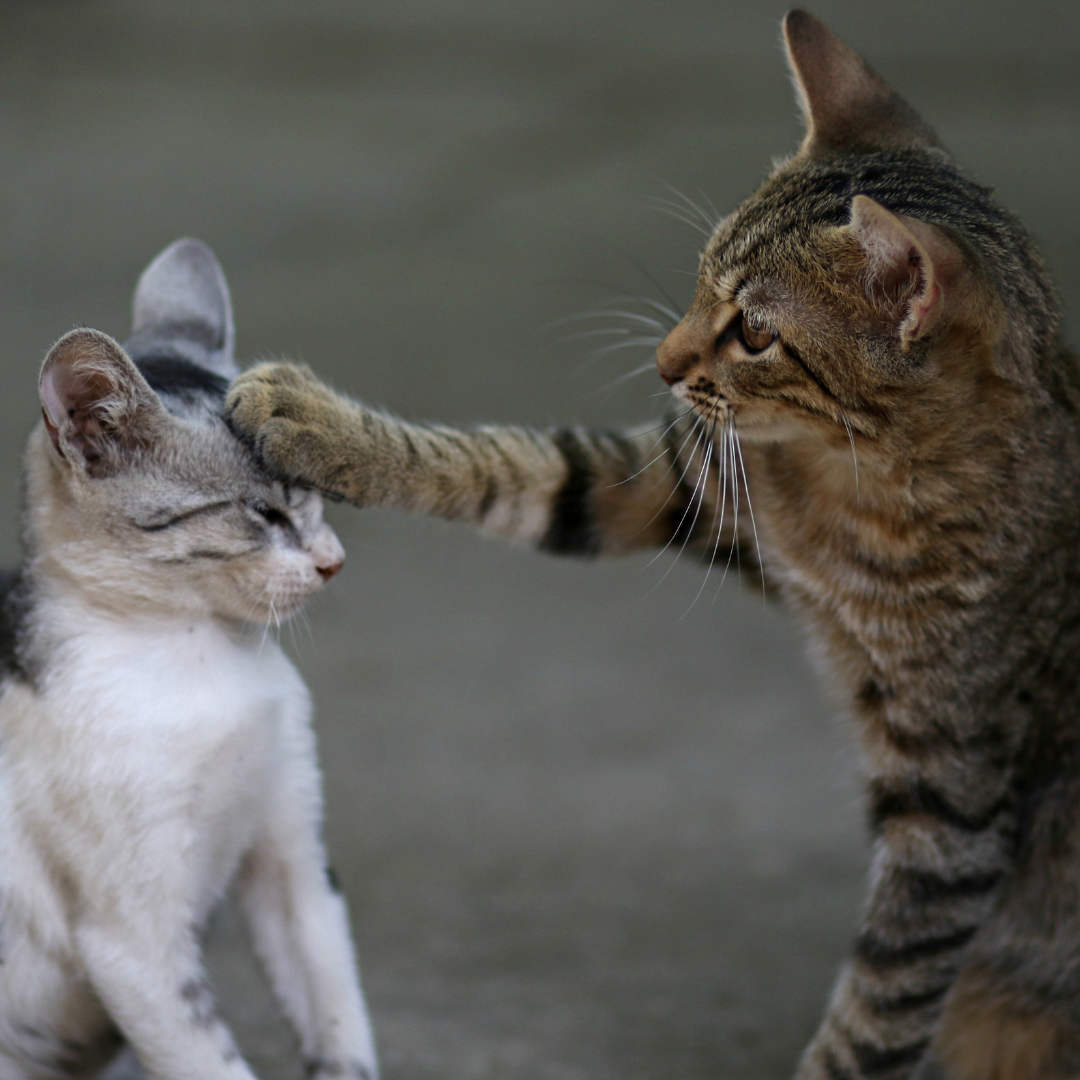
2. Lack Of Socialization
Cats are social animals, and they thrive on social interaction and companionship. They form strong bonds with their owners and other cats, and without these social connections, they may become anxious and stressed.
Cats who are isolated or have limited social interaction may display a range of behaviours, such as hiding, excessive grooming, and aggression.
One of the key ways to ensure your cat gets the socialization they need is to spend quality time with them each day.
This can include playing with them, grooming them, or simply spending time in the same room as them.
You can also consider adopting another cat to provide your cat with a companion, but it's important to introduce them gradually and ensure they get along well.
3. Illness Or Pain
Illness or pain can be a significant source of stress for cats, as it can cause discomfort and disrupt their daily routines.
Cats may exhibit a range of behavioural changes in response to illness or pain, such as aggression, hiding, or changes in eating or grooming habits. These behaviours can be signs of stress and should be taken seriously.
Monitoring your cat's behaviour and seeking veterinary care if you notice any changes is important.
Your veterinarian can thoroughly examine and recommend appropriate treatment to alleviate your cat's pain or discomfort.
4. Anxiety
Anxiety is a common cause of stress in cats and can stem from various factors. Separation anxiety is a common type of anxiety in cats, and it can occur when a cat is alone for long periods or separated from their owner.
Cats with separation anxiety may exhibit destructive behaviour, excessive meowing, urinate or defecate outside the litter box.
Fear of loud noises like thunderstorms or fireworks can also trigger cat anxiety. They may display fearful behaviour, such as hiding or shaking, or become aggressive in response to the perceived threat.
Traumatic experiences, such as being involved in a car accident or being attacked by another animal, can also lead to anxiety in cats.
They may display fearful or defensive behaviour in response to triggers that remind them of the traumatic experience.
5. Lack Of Stimulation
Lack of mental stimulation can also cause cat stress. Cats are natural predators and require playtime to stay physically and mentally stimulated. With enough motivation, they may become bored and relaxed.
Cats kept indoors without access to outdoor playtime may be particularly prone to stress related to lack of stimulation.
Providing a stimulating environment with plenty of toys and activities is important to keep your cat entertained.
Consider setting up a play area with scratching posts, climbing structures, and interactive toys, or provide puzzle feeders to keep your cat mentally engaged.
6. Overcrowding
Overcrowding can cause stress in cats, particularly if they share a living space with multiple cats.
Too many cats in one household can lead to tension and territorial issues, which can cause aggressive behaviour and even physical altercations.
Cats are solitary animals by nature, and while some may tolerate living with other cats, they all have their personalities and preferences.
Some cats may be more territorial and prefer their own space, while others may be more social and enjoy the company of other cats.
Providing each cat with space and resources, such as separate feeding and litter areas and places to hide or retreat, is important if you have multiple cats.
This can help prevent territorial disputes and promote a peaceful living environment.
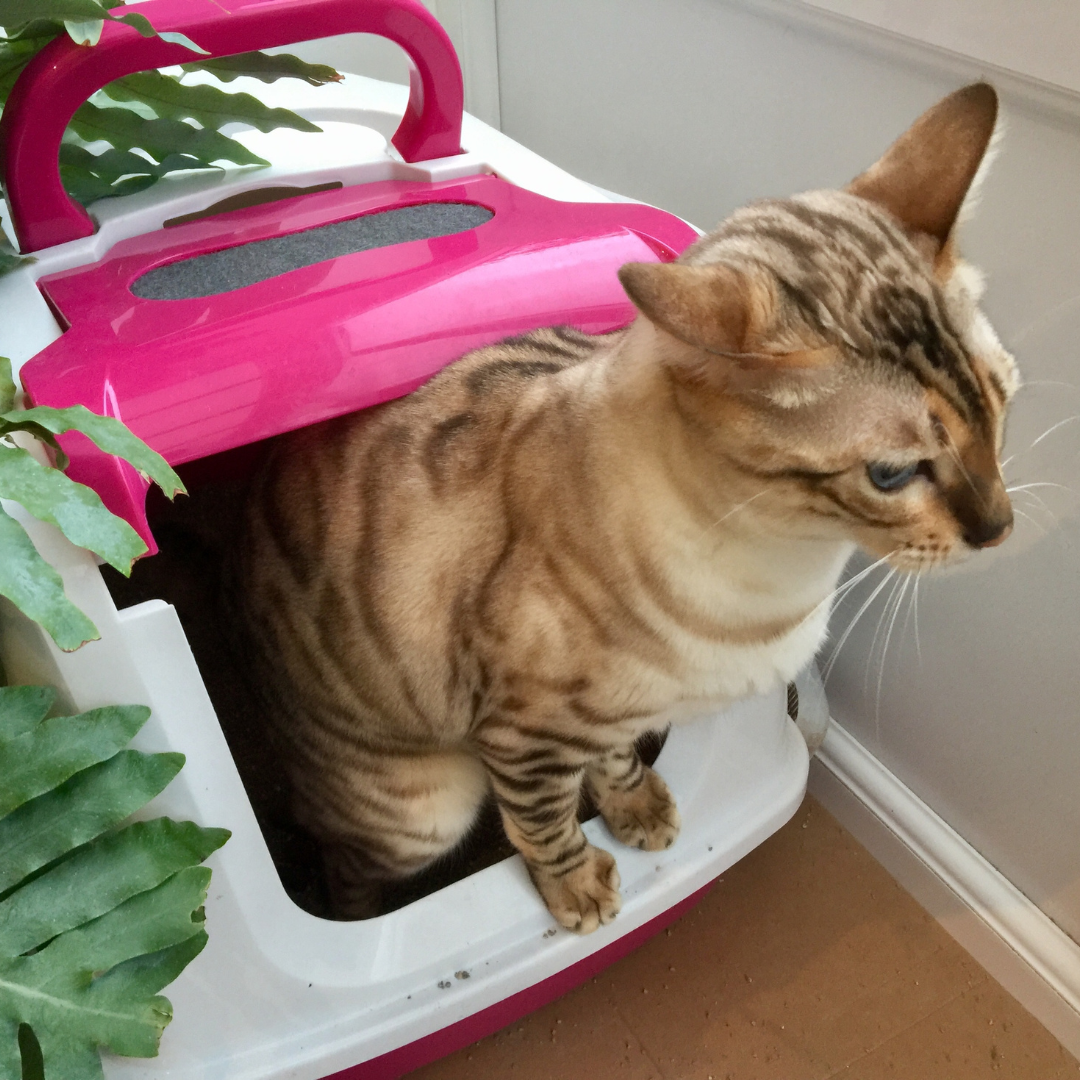
7. Litter Box Issues
Litter box issues can also be a source of stress for cats. If the litter box is not cleaned regularly, it can become a source of discomfort and unpleasant odours for your cat.
This can lead to them avoiding the litter box altogether and relieving themselves in other areas of the home.
8. Feeding Issues
Feeding issues can also be a source of stress for cats. If a cat is not getting enough food or water or its feeding routine is disrupted, it can lead to anxiety and stress.
Cats may sometimes be stressed because they do not get enough food or water. This can happen if their food and water bowls or more food or water must be refilled regularly to meet their daily needs.
It's important to ensure that your cat always has access to fresh, clean water and that they are fed a well-balanced diet that meets their nutritional needs.
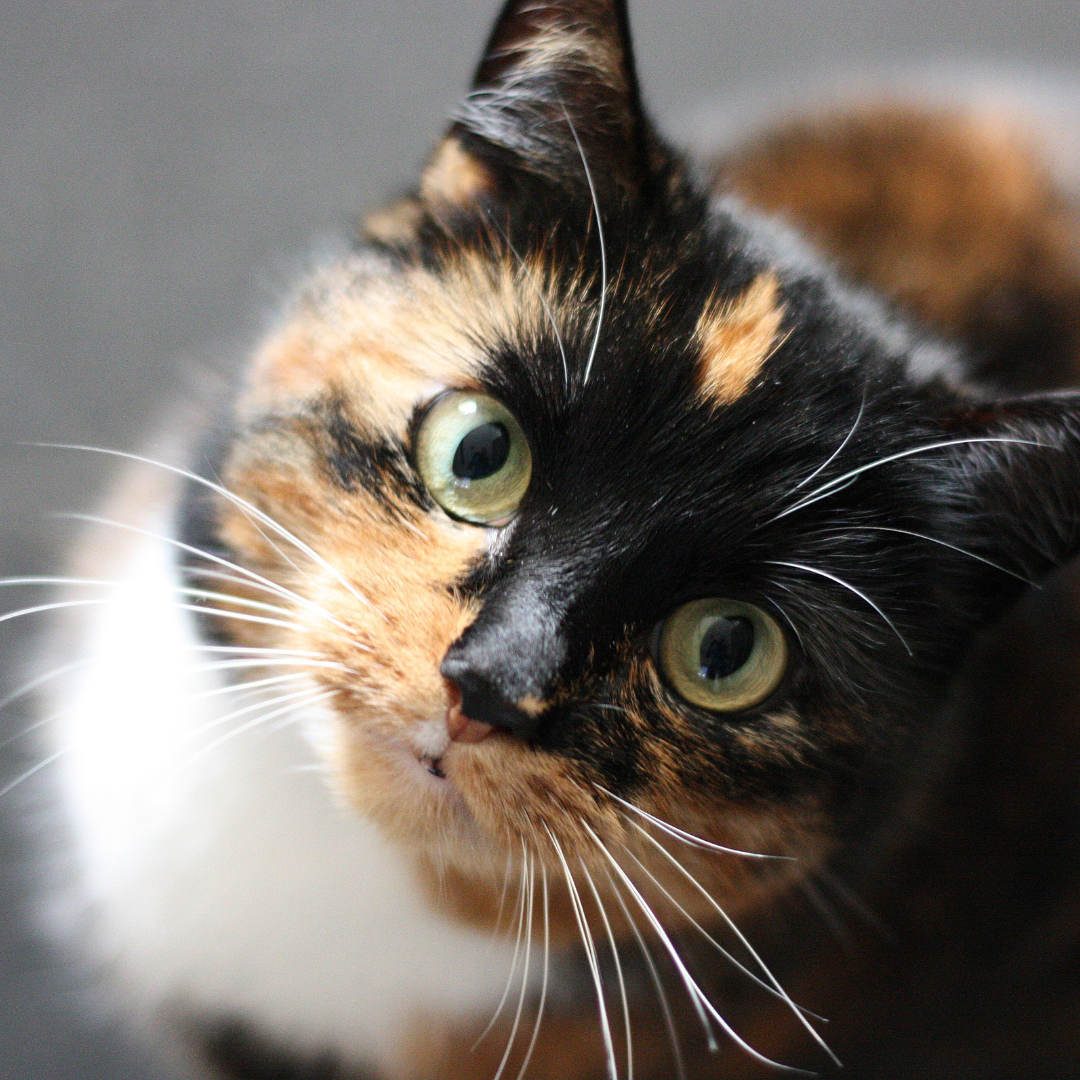
9. Lack Of Proper Routine
Cats are creatures of habit and routine. They are most comfortable with a predictable daily routine, including specific times for feeding, playtime, and grooming.
Any changes to this routine can cause stress for your cat. This could be as simple as a change in feeding schedule or when you come home from work. Even small changes like rearranging furniture can be stressful for cats.
Changes to routine can also cause anxiety in cats because they may not understand why the change is happening.
For example, if you suddenly start working from home and are around your cat more often, they may become anxious and confused about why you're always there. This is particularly true for cats who are used to being alone during the day.
10. Travel
Travelling can be a significant source of stress for cats, particularly if they are not accustomed to being in a car or confined space.
Some cats may become anxious or agitated during car rides, resulting in vocalization, pacing, or attempts to escape. This can make travel difficult for both the cat and the owner.
Cats can become stressed or anxious during long periods of confinement, such as during air travel.
Air travel can be particularly challenging for cats, who may be exposed to unfamiliar sights, sounds, and smells.
This can increase anxiety and stress, leading to physical symptoms like vomiting or diarrhea.
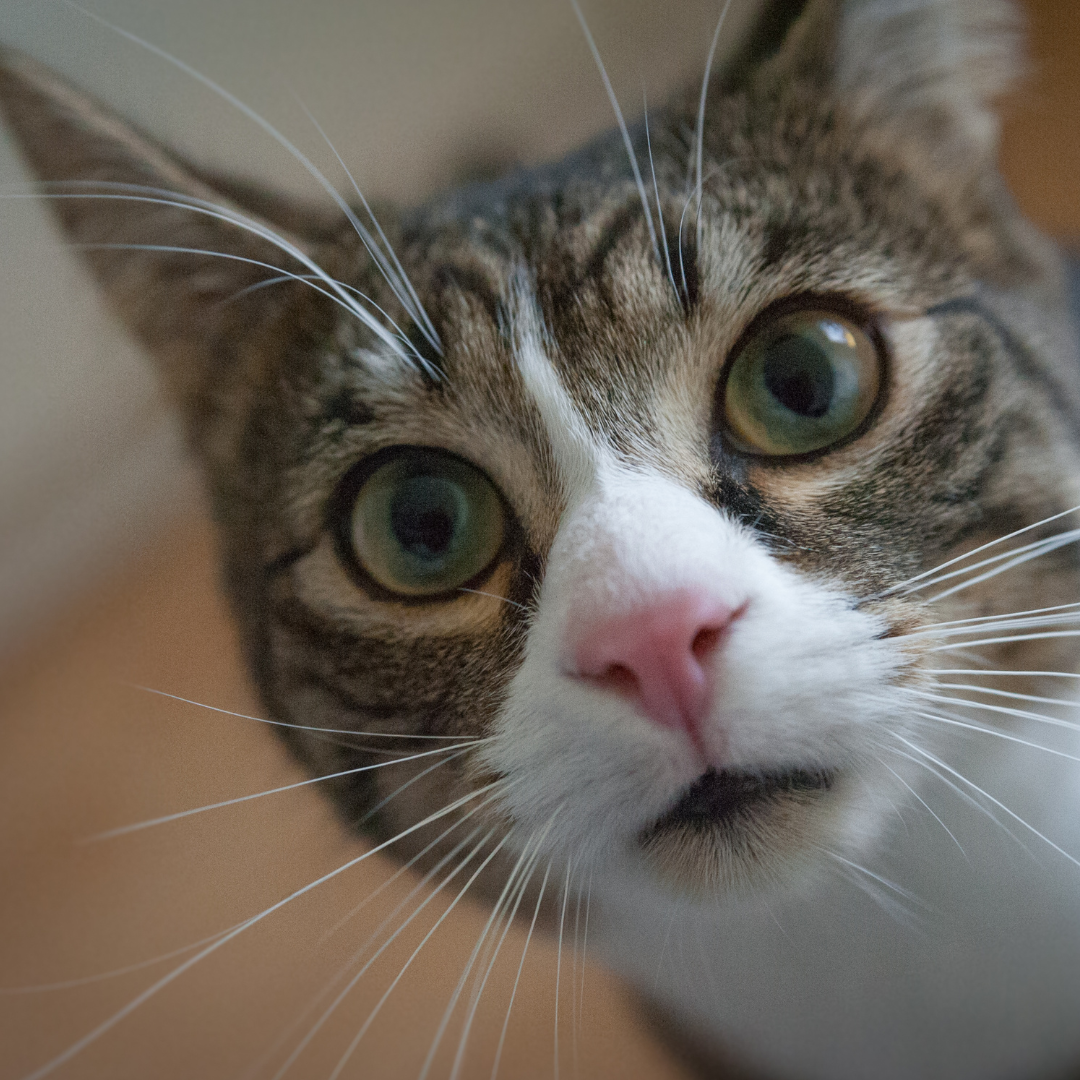
Tips To Relieve Stress In Cats
Cats are known for being independent and laid-back creatures, but they can also experience stress, just like humans.
Stress can negatively affect a cat's health and behaviour, including digestive problems, aggressive behaviour, urinary issues, and more.
As a cat owner, it's important to recognize the signs of stress in your feline friend and take steps to alleviate it.
Now, we will share tips to help relieve your cat's stress and provide them with a happier, healthier life.
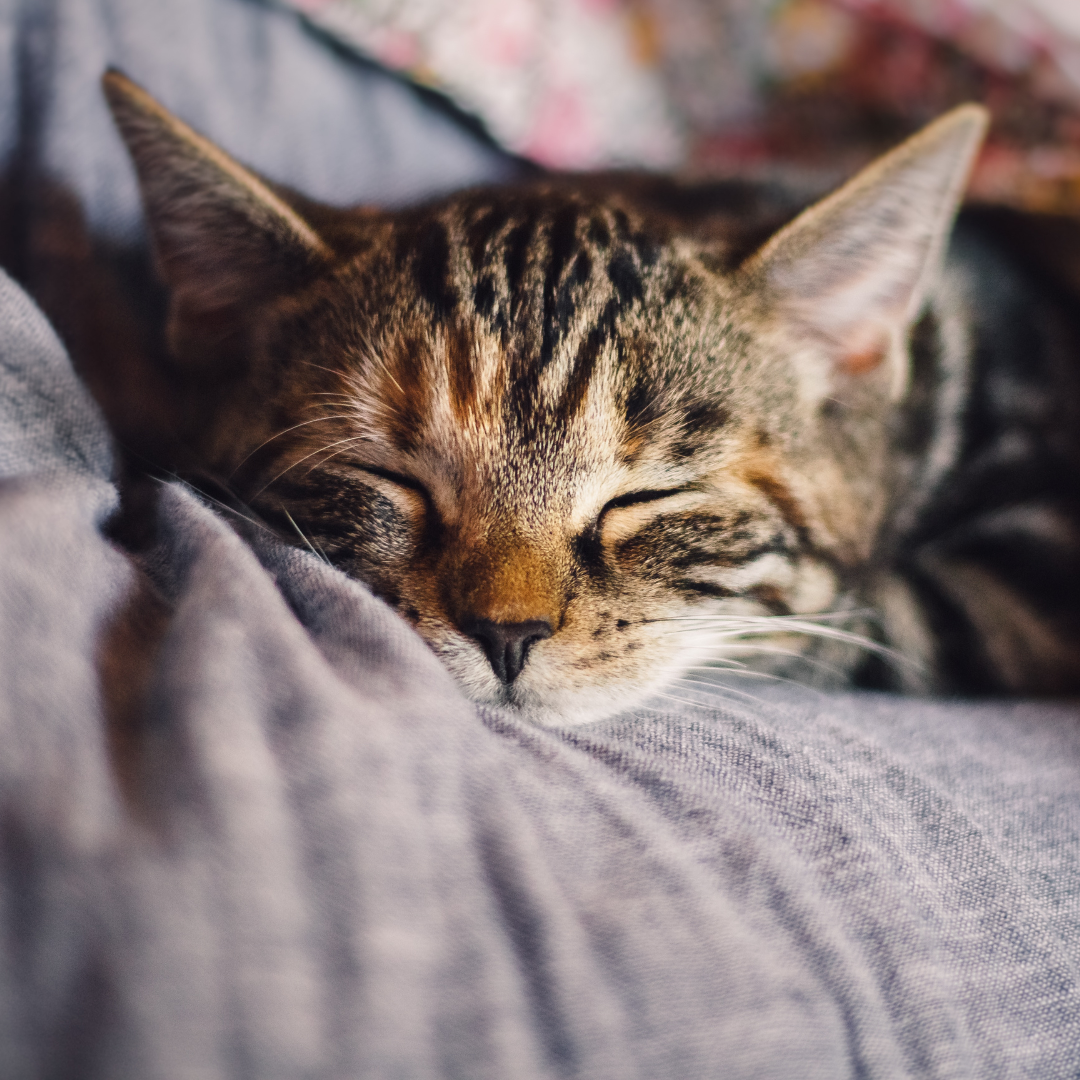
1. Provide A Calm And Stable Environment
Creating a peaceful and stable environment for your cat reduces its stress levels. This can be achieved by keeping their living space consistent and avoiding sudden changes that may startle or upset them.
Providing a comfortable, quiet space where they can retreat when they feel anxious, such as a cozy bed or a cat tree, can also help to reduce their stress.
Additionally, offering your cat some form of mental stimulation, such as interactive toys or scratching posts, can help keep them entertained and prevent boredom-related stress.
2. Offer Them Plenty Of Playtime And Mental Stimulation
Offering your cat plenty of playtime and mental stimulation is important for their overall well-being and can help reduce their stress levels.
Interactive toys, puzzle feeders, and scratching posts are great ways to stimulate your cat's mind and provide them with a healthy outlet for their energy.
Playtime also strengthens the bond between you and your cat, helping to reduce their stress levels.
Regular play sessions can also help prevent behavioural issues such as destructive behaviour or excessive meowing caused by boredom and stress.

3. Ensure Its Basic Needs Are Met
Ensuring your cat's basic needs are considered is essential for its overall health and well-being. Give your cat access to fresh food and water at all times, and clean their litter box regularly.
A clean, comfortable sleeping area is also important for your cat's mental and physical health.
Maintaining a regular feeding, play, and sleep routine can help reduce your cat's stress levels by giving them a sense of structure and predictability.
Consistency and exercise can help your cat feel secure and comfortable in their environment.
4. Consider Pheromone Therapy
Pheromone therapy comes in various forms, such as sprays, diffusers, and collars. They can be used in multiple situations, such as during travel, when introducing new environments, or when introducing a new cat to the household.
It's important to follow the instructions carefully and consult with a veterinarian before starting pheromone therapy.
While pheromone therapy can be effective for many cats, it may not work for all cats and should be used with other stress-reducing techniques.

5. Try Natural Stress Remedies
Natural remedies such as herbal supplements and flower essences can help reduce cat stress.
Some of these remedies, such as chamomile or lavender, have calming properties that can help to soothe anxious cats.
However, it's important to consult your veterinarian before using any natural remedies, as some may interact with medications or be harmful to cats with certain health conditions. Also, natural remedies should not substitute for proper veterinary care.
6. Seek Veterinary Care Or Behavioural Counselling
If you've tried various methods to reduce your cat's stress, but they still seem anxious or unsettled, it's important to seek professional help.
Your veterinarian can thoroughly examine your cat to rule out any underlying medical conditions that may be causing your cat's stress.
They can also recommend medications or other treatments that may help to alleviate your cat's anxiety.
If your cat's stress seems to be behavioural, a behavioural counsellor can help you identify the root cause of their stress and provide you with strategies for modifying their behaviour.
They may recommend environmental modifications, such as changes to your cat's living space or behavioural training techniques to help your cat feel more secure and comfortable.
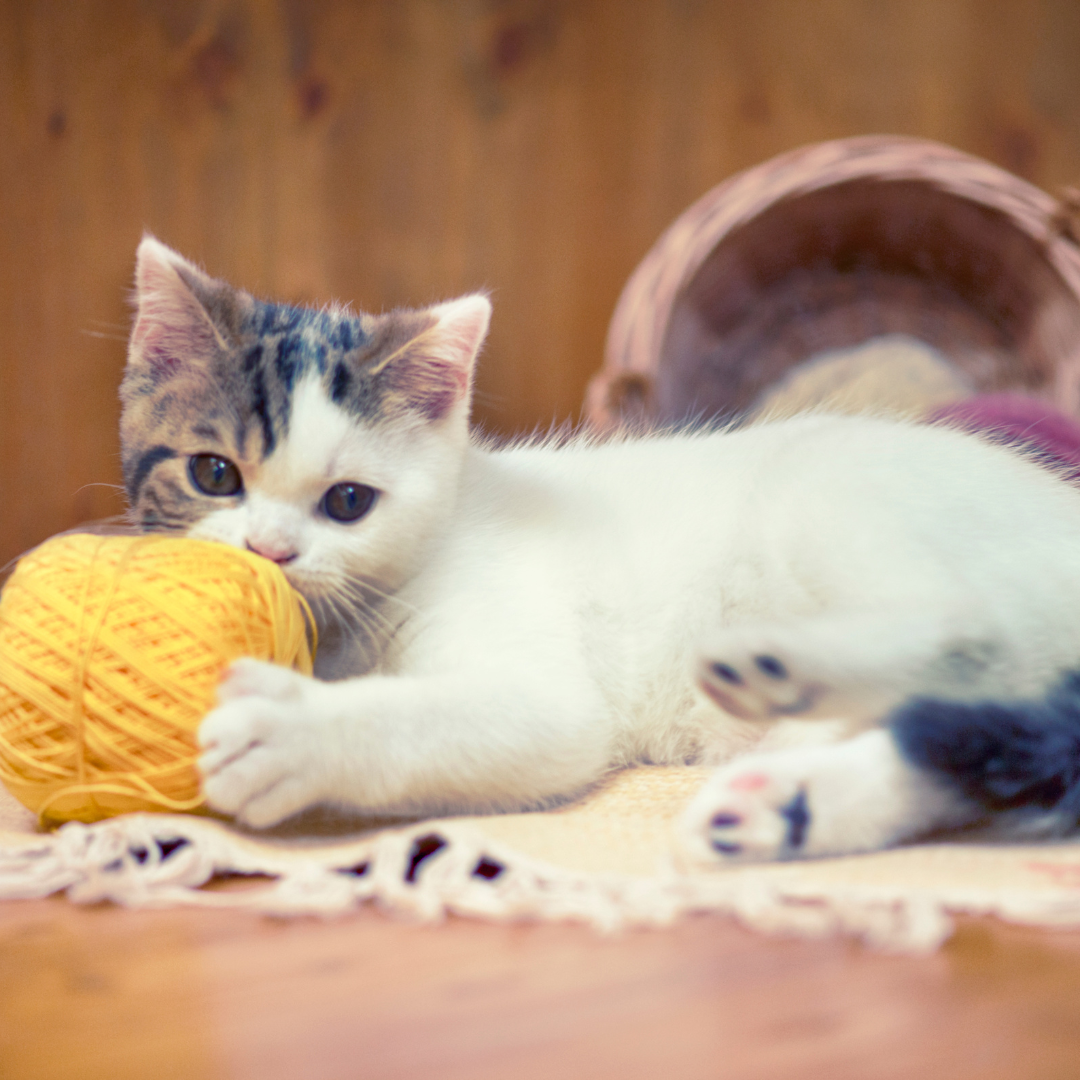
7. Playtime And Exercise
Playtime and exercise are important for cats to maintain physical and mental health. Cats are intuitive to hunting and play, and interactive toys can provide a great outlet for this behaviour.
Laser pointers, feather wands, and other interactive toys can simulate prey and engage your cat in fun and stimulating activities.
When playing with your cat, using toys that are appropriate to their age and size is important. Avoid small toys that can be swallowed or become choking hazards.
Supervision is also important to ensure your cat is playing safely and not becoming too rough or aggressive.
Playing with your cat can also help strengthen the bond between you and your pet. Interactive playtime can provide a fun and positive way to interact with your cat and help build trust and companionship. It can also be a great way to reduce stress and anxiety in both you and your cat.
8. Calming Aids
Cats can experience stress and anxiety in various situations, such as travel, vet visits, or environmental changes. Calming aids can help alleviate these symptoms and provide comfort for your cat.
There are different types of calming aids available for cats. Pheromone sprays and diffusers mimic the pheromones that cats naturally produce when they feel safe and secure.
At the same time, herbal supplements like valerian root, chamomile, and passionflower can calm cats.
Prescription medications may also be necessary to manage your cat's anxiety. However, it's important to note that these medications are only available with a prescription from your veterinarian and should only be used under their guidance.
It's important to consult your veterinarian to determine which calming aid is best for your cat's needs.
They can also help determine the appropriate dosage and frequency of use. Calming aids should be part of a comprehensive approach to managing your cat's stress, including environmental changes, behaviour modification, and routine veterinary care.
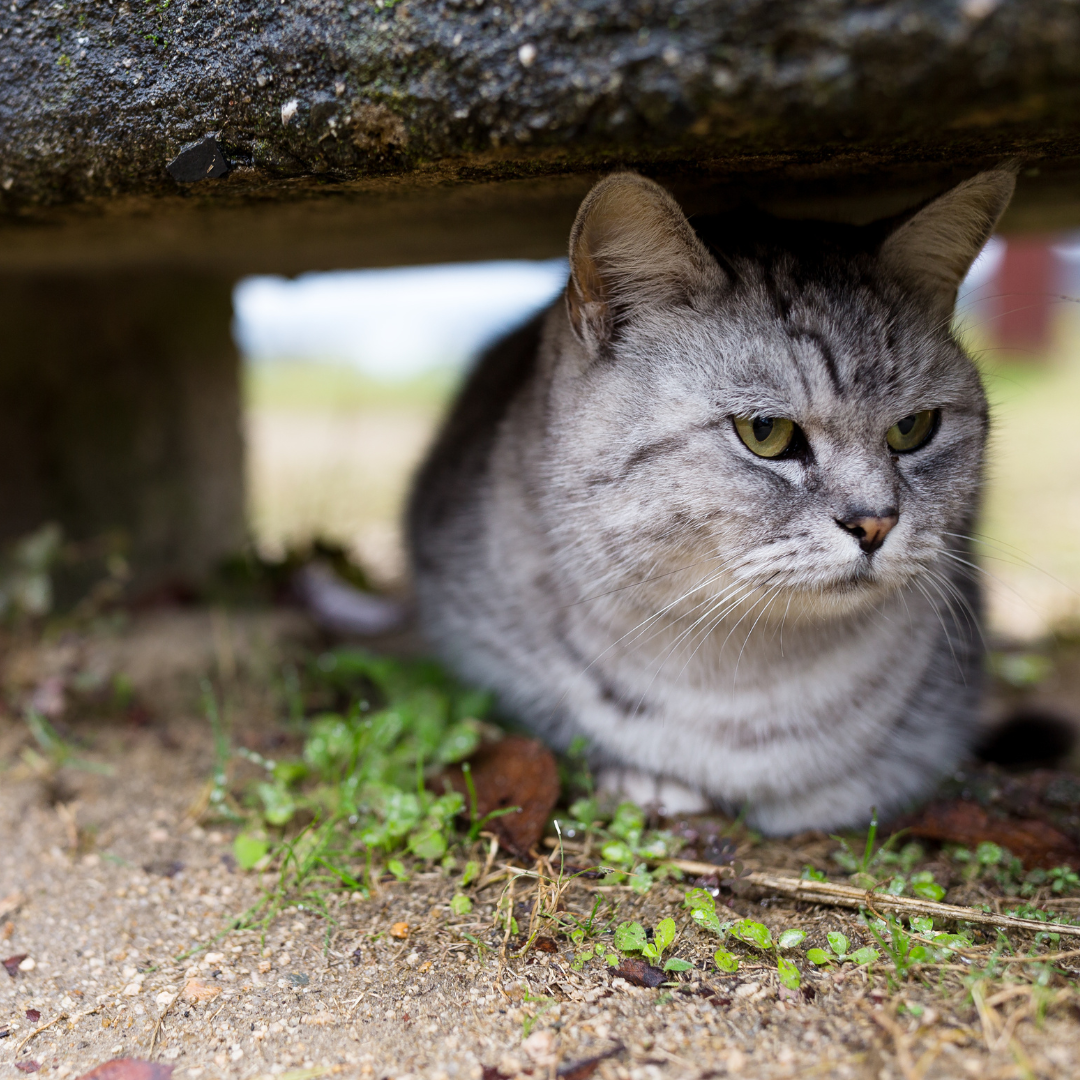
Conclusion
Cats can experience stress just like humans, and cat owners need to recognize the signs of stress and take steps to alleviate it.
Common reasons for cat stress include environmental changes, lack of socialization, illness or pain, and anxiety.
You can reduce your cat's stress and give them a happier, healthier life by following advice like offering them a calm and stable environment, plenty of playtimes, and mental stimulation.
You can also consider pheromone therapy, try natural remedies, get veterinary care, or get behavioural counselling.
Always consult your veterinarian before trying new remedies or therapies, and stay attentive to your cat's behaviour to ensure its ongoing health and well-being.
I trust you enjoyed this article about the Best Tips To Relieve Stress In Cats. Please stay tuned for more blog posts to come shortly.
JeannetteZ
>>>Please click here to read my all-inclusive article about the Best Cat Care Tips For Beginners<<<
Your Opinion Is Important To Me
Do you have thoughts, ideas, or questions? I would love to hear from you. Please leave me your questions, experiences, and remarks about this article on the Best Tips To Relieve Stress In Cats in the comments section below. You can also email me at Jeannette@Close-To-Nature.org.
Disclosure
This post may contain affiliate links. I earn from qualifying purchases as an Amazon Associate and other affiliate programs. Please read my full affiliate disclosure.
You might also enjoy these blog posts:
Why Is My Dog Stressed And How To Relieve It?
15 Best Ways To Reduce Stress In Kids
15 Best Tips On How To Reduce Eye Stress
Best Tips To Reduce College Stress
Best Tips To Reduce Breakup Stress

